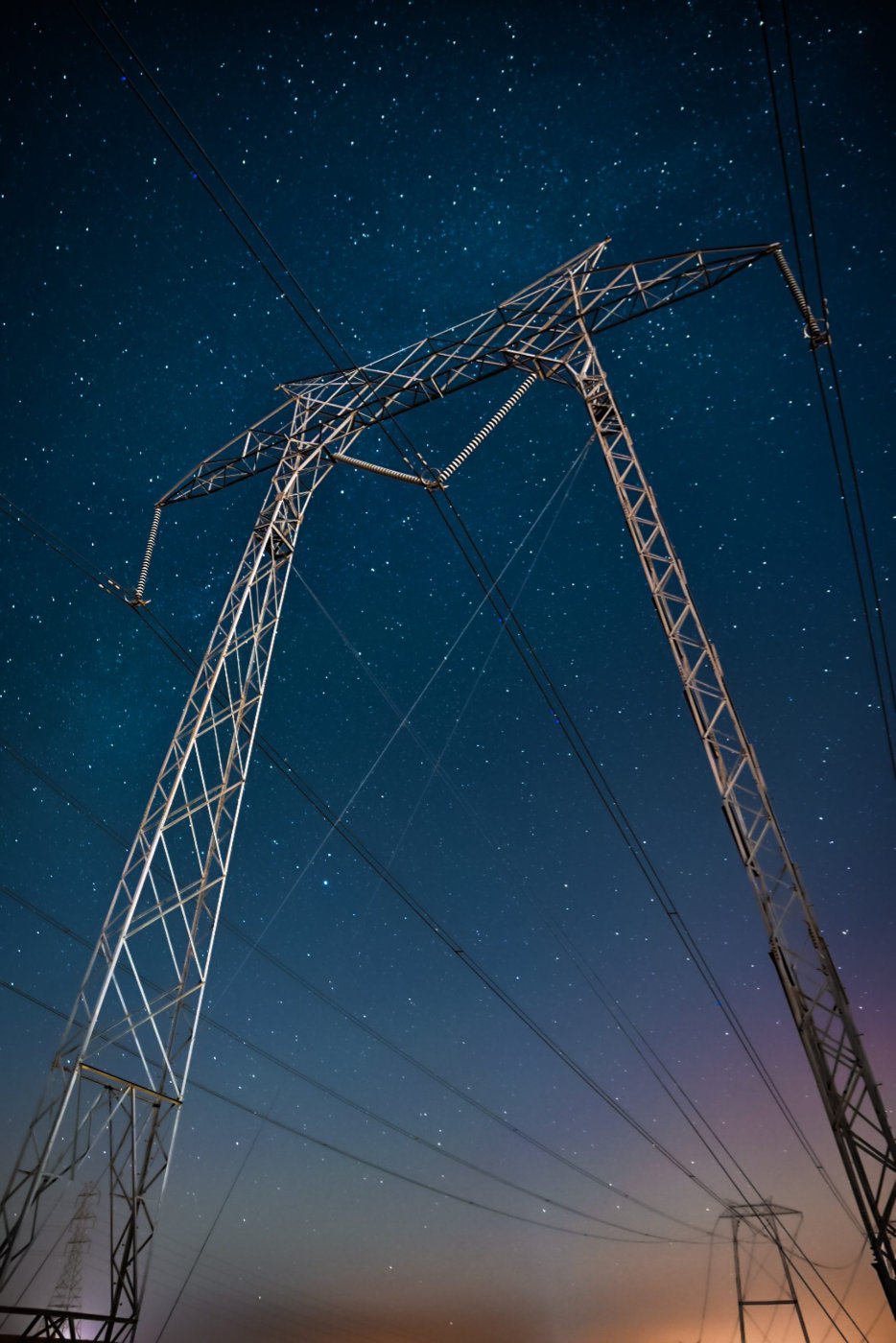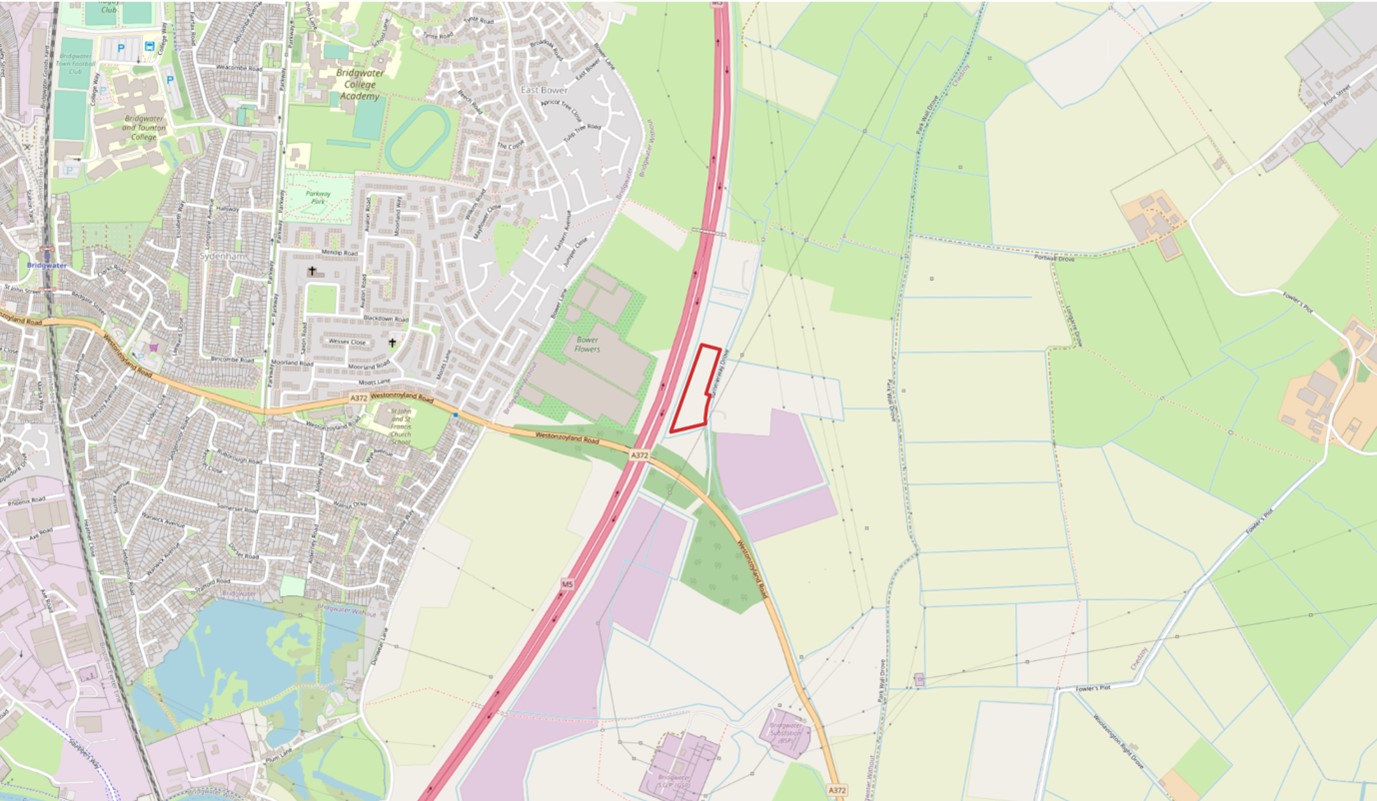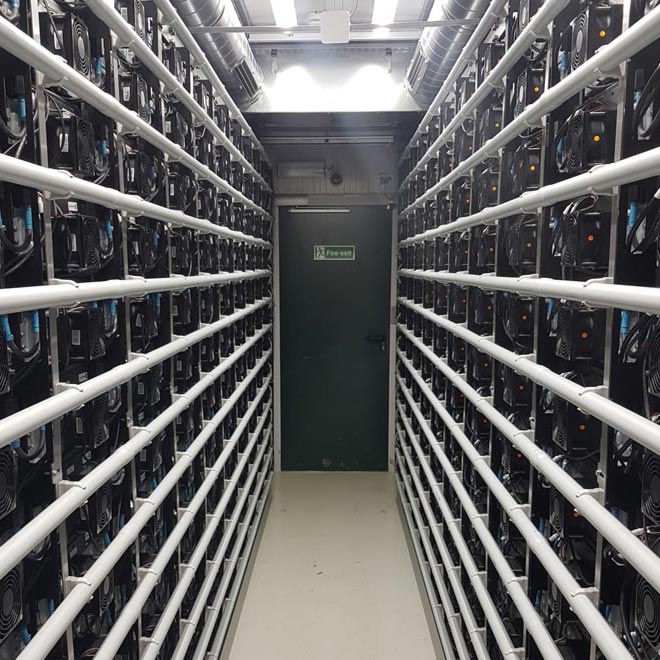SUMMERWAY DROVE
BATTERY STORAGE
Somerset Council granted consent for the 90MW/180MWh Battery Energy Storage System (BESS) on land at Summerway Drove, Bridgwater on the 10th February 2025. Once operational, the BESS will enable energy from renewable generation sources such as solar and wind to be stored and released when the network requires helping to maintain grid stability. This will help to tackle the climate emergency in Somerset by increasing the utility and reliability of renewable energy sources.
- Battery storage has a key role to play in ensuring homes and businesses can be powered by renewable energy sources, even when the sun is not shining or when the wind is not blowing.
- Batteries help to manage the peaks and troughs of energy demand, supporting a more stable and reliable national electricity grid that is capable of delivering the transition to decarbonised transport and heating needed to meet the country’s net zero goals.
- The UK Government estimates that the implementation of flexible technologies like battery energy storage systems could save the UK energy system up to £40 billion in operating costs by 2050, which will help to reduce individual energy bills – Battery storage boost to power greener electricity grid – GOV.UK (www.gov.uk)
Renewable Connections undertook consultation in 2023 to inform the local community of the proposed plans and invite feedback on the proposal.

LOCATION
The site for the Battery Storage facility is land on the eastern side of the M5 Motorway, on Summerway Drove, Bridgwater, Somerset.
The site is situated on an enclosed field of approximately 1.3 hectares currently used as a horse paddock. The field is enclosed by mature vegetation on part of the southern boundary and the M5 motorway on the western boundary, and the site will unlikely be visible from the M5 or the A372 to the south.
The site was identified because of its proximity to the Bridgwater Grid Supply Point (GSP) and its ability to screen with new landscaping whilst having minimal impact on agriculture or the existing landscape. As a consequence, there are limited views of the site from the local community and nearby properties, and it also benefits from being close to a viable grid connection
OUR PROPOSALS
Once installed, the BESS will provide storage for up to 90MW/180MWh of electricity storage and will be operational for up to forty years. After this time, the installation will be removed in its entirety and the land will be restored to its previous use.
The Summerway Drove BESS facility will include state-of-the-art Lithium Iron Phosphate (LFP) battery technology, comprising battery storage modules aligned in rows supported by transformer and inverter platforms. The height of the battery storage modules will be less than 3m.
The transformer and inverter platforms will be connected via underground cables, as will the point of connection to the existing GSP. A 2.1m high perimeter security fence will enclose the site, and will include free-standing CCTV cameras with infrared lighting pointing inwards towards the site only to ensure the safety and protection of the BESS equipment.
PROJECT TIMELINE
STAGE 1
Site selection
Autumn 2022
STAGE 2
Preliminary Surveys
Spring 2023
STAGE 3
Pre-application
Spring 2023
STAGE 4
Community Consultation
Summer 2023
STAGE 5
Submission
Summer 2023
STAGE 6
Construction
2030
THE NEED FOR THE PROJECT
Following the Government’s declaration of an “Environment and Climate Emergency” in May 2019, the Committee on Climate Change (CCC) advised that to meet ‘Net Zero’ targets, the UK will require substantial amounts of new, low carbon power sources to be built before 2050, up to four times that of today’s levels. Energy storage systems are essential for achieving these goals and National Grid estimates that over 100 GWh of energy storage will be required to meet UK’s net zero target by 2050. Currently there is only approximately 4 GWh of energy storage in existence in the UK.
Battery storage, together with renewable energy generation can help support the target of 50% of energy for the UK’s heat, transport, and electricity consumption to be supplied from renewable sources by 2030.
BESS’s can react rapidly to sudden changes in the electricity supply and demand securing the stability of the network by using intelligent software to co-ordinate energy production and to decide when to store or release energy to the national grid to meet peak demand. This improves the stability of the grid network and allows stored renewable energy to be used even when the conditions for generation are not being met.
FAQ’s
How do battery energy storage systems work?
Battery Energy Storage Systems (BESS) can be charged by electricity generated from renewable energy, such as wind and solar power, which only produce energy under certain conditions. BESS use intelligent software to co-ordinate energy production and to decide when to store or release energy to the national grid to meet peak demand. This improves the stability of the grid network and allows stored renewable energy to be used even when the conditions for generation are not being met.
Why not use nuclear power instead of battery storage?
Whilst nuclear power stations are able to generate a large and consistent amount of electricity for baseload operation, they are very expensive to build and operate and are unable to react quickly to fast-changing grid fluctuations. On the other hand, BESS is able to respond to changes in the grid quickly and makes it possible for cheap renewable energy to be used during times when it wouldn’t normally be possible. For this reason, to improve the stability of the grid network and to facilitate the transition to net zero it makes more sense to invest in BESS rather than nuclear power.
Why this location?
This site has been identified following an extensive site selection process which considered environmental designations, local electricity network access and capacity, the physical characteristics of the site, and the need for a supportive landowner.
Will there be any impacts on local roads?
For a period of approximately six months during construction, there will be deliveries of equipment to site. Renewable Connections Developments will put in place measures to manage impacts of construction traffic and these measures will be included in a Construction Traffic Management Plan (CTMP) that will submitted with any future planning application. There will be infrequent maintenance visits to the site during operation.
Will there be any permanent impact?
No – the Balbougie BESS would operate for a period of up to 40 years, following which the site would be fully decommissioned and returned to its pre-existing use as a storage yard for the neighbouring garden centre.
Do batteries pose a health risk?
No – LFP batteries (or Lithium Iron Phosphate) will be used in the Summerway Drove Energy Storage system. LFP batteries are thermally and chemically stable, with no risk of fumes or gas leaks. They are made of abundant, non-toxic materials like iron, copper and graphite so have a lower environmental impact from mining, processing and recycling.
Are the batteries noisy?
No – while the Balbougie BESS will generate some low-level electrical noise from the inverter, switchgear, and fan equipment this noise would not be perceptible beyond the site boundaries and would not have an adverse impact on any nearby residential receptors. To demonstrate this, a Noise Impact Assessment will be submitted as part of any future planning application.
Are the batteries safe?
The battery storage modules are designed to have a very low risk of failure, and an even lower risk that any failure would result in a fire. In the unlikely event that a fire does occur, both fire detection and fire prevention equipment is installed in all the battery storage modules to ensure that any fires remain under control. All modules will also be equipped with an inert gas suppression system designed to extinguish any fires that are detected by the monitoring system.
GET IN TOUCH
summerwaydrovebess@renewableconnections.co.uk
0800 254 5011
Summerway Drove BESS,
4th Floor, LDN:W
3 Noble Street
London
EC2V 733
Renewable Connections is committed to respecting your privacy and to complying with UK data protection and privacy laws. Our privacy policy explains how we collect, use, share and protect personal information.


